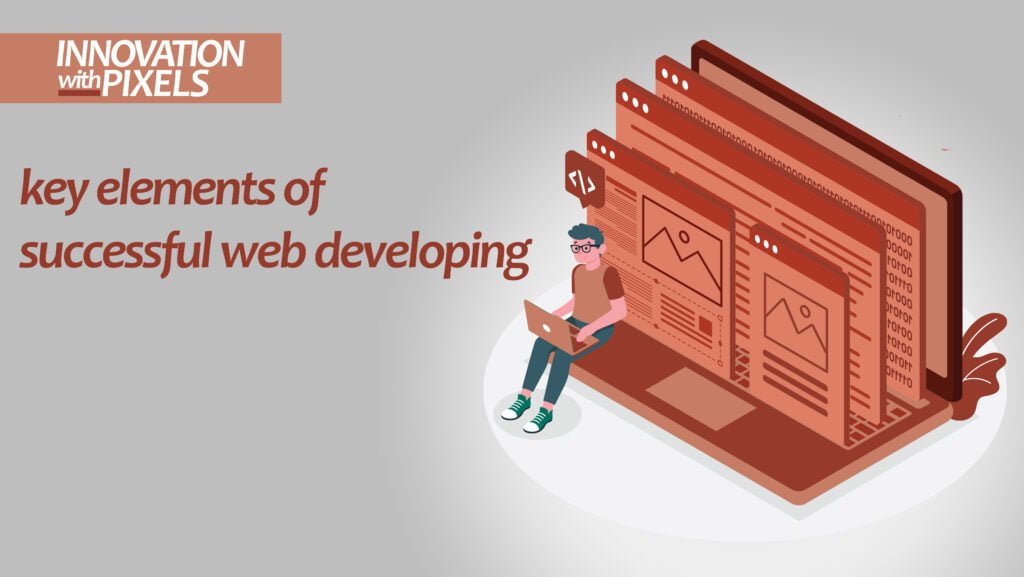Are you ready to take your web development skills to the next level? Discover the key strategies for creating a website that stands out and drives results in this comprehensive guide to successful web development.
Web development is a rapidly growing field that is essential to the success of any business or organization in today’s digital age. As a web developer in Lahore, it is important to stay up-to-date with the latest technologies and trends in web developing to create high-quality and effective websites that meet the needs of your clients. By unlocking the secrets of successful web development., businesses can create websites that engage and retain users, drive conversions, and ultimately achieve their online goals.
The different types of website developing
There are many types of web development, each with its own challenges and rewards. Here are some of the most popular:
- Full-stack web development: Full-stack web developers, as the term implies, are at ease using both front-end and back-end technologies. They are truly multi-talented individuals that are capable of creating a website or application from scratch.
- Front-end web development: The primary goals of this style of web development are the visual design and ease of use of the site’s or app’s interface. They are responsible for ensuring that the website is user-friendly, aesthetically pleasing, and easy to navigate. Front-end development also includes the optimization of the website for different devices and screen sizes, such as desktops, tablets, and mobile devices.
- Back-end web development: Website and app functionality and data processing are the focus of this area of web development. Programming languages like PHP, Ruby on Rails, and Python are the tools of choice for back-end developers, who are responsible for the operational underpinnings of a website or app.
- WordPress development: One of the most widely used content management systems in the world, WordPress powers millions of websites, both big and small. Website WordPress templates programmers create unique themes and plugins.

-
The Importance of Website Design
First you know what is website design? Website design is the process of creating the visual layout and user experience of a website. It is one of the most important aspects of website development and plays a critical role in determining the success of a website. A well-designed website not only looks professional and polished, but it also makes it easy for users to find the information they need and navigate through the site.
-
Best practices for website development
To be a successful web developer, it is essential to stay up-to-date with the latest best practices for website development. This includes using responsive design to ensure that your website looks great on any device, implementing proper navigation and organization to make it easy for users to find what they need, and using clean and valid code to ensure that your website loads quickly and is free of errors.
-
The Role of UI/UX in website development
User Interface and User Experience are two important elements of Web developing that play a vital role in determining the success of a website. UI refers to the design elements of a website such as a layout, colors, and typography, while UX refers to the overall experience of using a website. As a web developer, it is important to understand the principles of UI/UX and create a website that is visually appealing, easy to navigate, and provides a positive experience for users.
-
Web Security
Web security is an essential aspect of website development that must not be overlooked. As a web developer, it is important to understand the basics of web security and implement best practices such as using secure passwords, encrypting sensitive data, and protecting against common attacks such as SQL injection and cross-site scripting. This will help ensure that your website is safe and secure for both users and clients.
-
The Role of CMS in website development
It is possible to substantially streamline the creation of a website with the help of a content management system (CMS). Content Management Systems (CMS) play a critical role in website development by providing an efficient and user-friendly platform for managing website content. CMS platforms such as WordPress, Drupal, and Joomla allow developers and site owners to create, edit, and publish content without requiring extensive technical expertise, making it easier to maintain and update websites over time.
-
The Role of Frameworks in website development
Web development frameworks such as Angular, React, and Vue.js has become increasingly popular. These frameworks provide a structured and efficient way of building web applications and can help developers to write less code, debug and test more easily, and keep their code organized.

The skills you need to be a successful web developer
To be a successful web developer, you need a combination of technical and soft skills. Technical skills are necessary for creating the core functionality of a website or web application, such as programming languages like HTML, CSS, and JavaScript. You also need to be familiar with web development tools and frameworks, database systems, and web accessibility and user experience design principles. Soft skills, such as problem-solving, critical thinking, communication, and collaboration, are also important. Successful web developers must continuously learn and stay up-to-date with the latest trends and technologies. Passion for web development and a strong commitment to writing clean, maintainable code is also essential for a successful career in web development.
Conclusion
A successful web development project requires technical skills, design principles, and business knowledge. It requires staying up-to-date with new technologies and constantly learning and adapting to the evolving digital landscape. By following these principles, web developers can create high-quality, user-friendly websites that drive traffic and achieve business goals. Also, to stay competitive in your field, you need to keep up with the latest development trends and technologies.